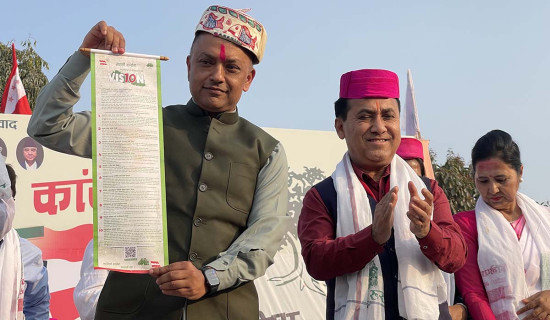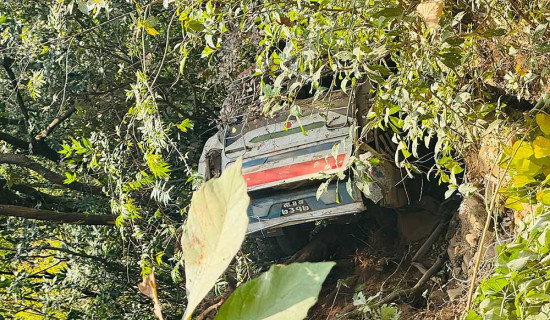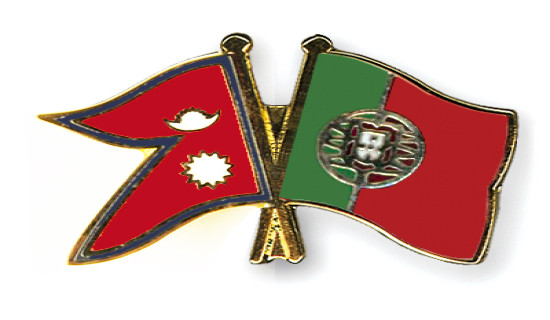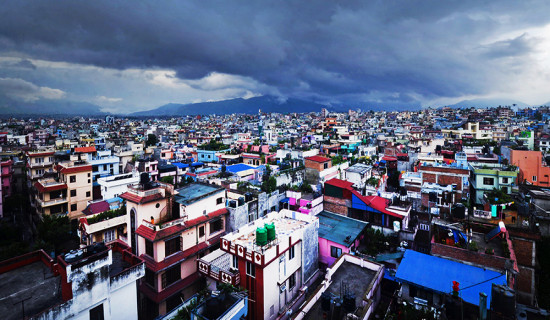- Thursday, 19 February 2026
Weakening poll integrity undemocratic: Chief Election Commissioner Thapaliya
Kathmandu, Apr. 19 (RSS): Chief Election Commissioner Dinesh Kumar Thapaliya today said the tendency of weakening election integrity and contaminating poll-related activities could not be democratic.
Initiatives have been taken in creating an environment conducive to hold the May 13 local election in a fair, free and disciplined way and such efforts should not be doubted, he said at an event organised today here by the Election Commission. The programme was supported by the Press Council Nepal and the Federation of Nepali Journalists.
"It feels that there have somehow been uncomfortable situations and difficulties in carrying out electoral reforms effectively due to the culture of not entertaining any new changes and taking them with personal interest," he said.
Electoral reforms have been implemented only after a discussion with the stakeholders, he clarified. "We have decided to organise the local poll in a single-phase and a single day. Elections after 2048 BS have not been held in a single-phase and a single day. This could result in organising poll in a fair, free, impartial way."
As he explained, the EC took a risk in allocating election symbols to the parties except those with national recognition so as to pave the way for them to participate in the election despite a clear legal provision to this effect missing.
“The decision was new for us (the EC team).”
According to the Chief Election Commissioner, political parties have been advised that the implementation of the Article 38 (4) that provides women the right to participate in all bodies of the State on the basis of the principle of proportional inclusion and the Article 42 which is about the right to social justice would help enhance women’s representation, participation and inclusion in the election.
Stating the election was becoming extravagant posing the risk of the poll being influenced by money and resources instead of by party principles and ideologies, he said the EC fixed a ceiling for the election expenditure for the same reason.
As he said, the Election Code of Conduct was drafted acting on the suggestions from all bodies concerned as the EC hoped to see its effective implementation. “Its monitoring will be carried out through the participation of all bodies concerned.
Acknowledging the contribution of media to take the nation towards the election process, he urged media persons to fully comply with the journalist code of conduct and election code of conduct. “Media houses are highly expected to prove their professionalism, credibility, independence, fearlessness and to fulfill their responsibility towards the citizen.”
It has been proposed to ban the supplies and consumption of alcoholic products during the electoral silence to avert any untoward influence among voters, according to Thapaliya.
Council Chairperson Bal Krishna Basnet has urged the media to fully abide by the journalist code of conduct and election code of conduct.
He said, "It is the responsibility of all to follow the code of conduct. Media should play its role to help organise the election in a free and fearless environment."
Similarly, FNJ President Bipul Pokharel opined that the media should play a significant role in taking voters to polling stations and helping to hold the election in a fearless manner.
Pokharel further said that journalists should be active to show their neutrality during the poll.
On the occasion, an orientation on the issue of election code of conduct and news dissemination was given to photojournalists, online media journalists and journalists writing on the election.
Under-Secretary of the EC, Kamal Bhattarai, gave a presentation on the 'Election Code of Conduct-2078 Implementation and Collaboration with Photo Journalists'. Similarly, photojournalist Bikas Rauniyar gave a presentation on 'Photo Journalism: Past and Future' and photojournalist Bikas Karki on 'Election-related News Collection, Reporting and Photo Journalism'.
Likewise, senior journalist Hari Bahadur Thapa presented a working paper on 'Election-related News Collection and Reporting', EC Under-Secretary Surya Prasad Aryal on 'Election Code of Conduct-2078 and media sector' and media expert Kiran Chapagain on ' Prevention of Misinformation and Hate Speech and its possible impacts in election'.
Speaker Agni Prasad Sapkota has said that problems have been created due to the trend of interpreting laws by everyone in their own way.
Sapkota said so while inaugurating the interaction organised by Lumbini Province Assembly here today.
Stressing that the legislature should pay attention to making laws, he said that they are seriously involved in finding out structural loopholes in federal parliament and province legislature and resolving the problems.
Speaker Sapkota stressed the need of playing a historic role to make the parliament lively, people-oriented and dignified.
Similarly, the policy advisor of UNDP, Nepal, Binda Magar, General Secretary of the Federal Parliament, Dr. Bharat Raj Gautam, among others laid emphasis on making parliament practices more effective and people-oriented.
Speakers and deputy speakers of all seven provinces would exchange their five-year experience in the implementation of federalism as well as discuss its challenges and possibilities in the interaction.
A draft committee formed to prepare a synthesis report of the programme would prepare a report incorporating the issues raised in the interaction.

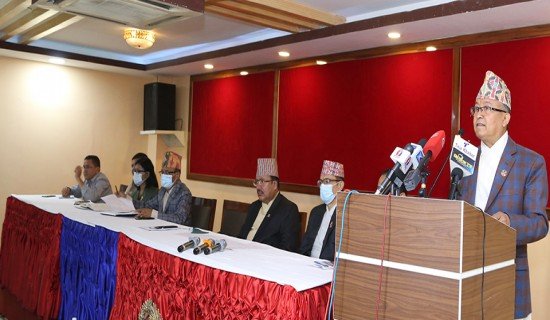






-square-thumb.jpg)
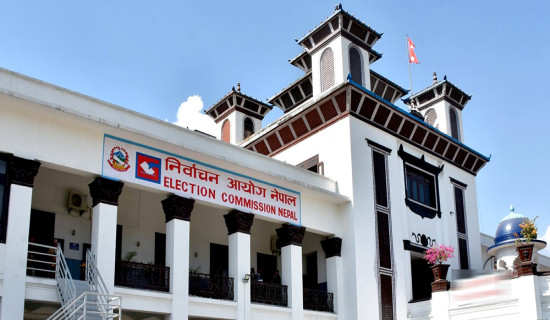
-original-thumb.jpg)

